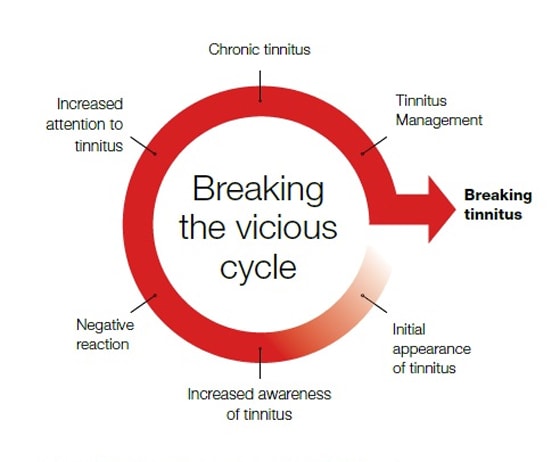Tinnitus – from the Latin verb “to jingle” – is an involuntary sound perception originating inside the head. In about 80 – 85% of cases, tinnitus is accompanied by hearing loss, but it can also be caused by exposure to loud sounds, accidents, ear infection, ageing or stress.
Much research is being done to find a cure for tinnitus. Currently sound therapy combined with informed counselling has been shown to be the most effective type of tinnitus management, helping people live better lives.
Sound therapy involves the introduction of sounds to help reduce the contrast of the tinnitus to the background environment. It is most effective when combined with a tinnitus management plan that includes counselling. You should seek guidance from your hearing care professional to discover the right sound therapy for you.


